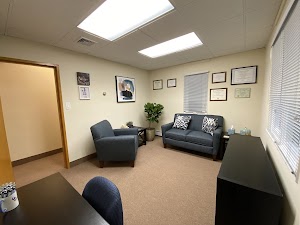
- This event has passed.
Responding to Religious Trauma: The Therapeutic Relationship as a Vehicle for Healing

About the Workshop
The therapeutic relationship plays a central role in healing religious trauma, often offering the first experience of safe, non-coercive connection after spiritual harm. But how do we, as clinicians, build that trust when the trauma itself is rooted in broken trust and misused power?
In this 2-hour CE workshop, we’ll explore how to apply trauma-informed care principles specifically to religious and spiritual trauma. You’ll learn strategies to support clients in rebuilding agency, self-trust, and spiritual flexibility, while also examining the clinician’s role, challenges, and blind spots in this work. Through guided reflection, experiential practice, and peer dialogue, this session will deepen your relational and clinical skills for walking alongside survivors with empathy and integrity.
* This workshop is part of a workshop series: Supporting Survivors of Religious and Spiritual Harm. You may take each workshop individually, or take all three.
Learning Objectives
- Match each of SAMHSA’s trauma-informed care principles to a clinical behavior or practice that promotes healing in the context of spiritual trauma.
- Demonstrate one clinical intervention that fosters self-trust or agency in a client navigating belief deconstruction.
- Identify at least two common challenges clinicians may face when working with religious trauma and describe strategies to address them.
To Register:
- Submit payment via PayPal button below. Please use the same email for your registration form.
- Complete the Registration Form below.
About the Facilitator
Kennesha Rodgers, MA, LAPC, CTP, (she/her/hers). Having personally experienced the transformative power of therapy and coaching, Kennesha is deeply committed to making these services accessible, especially for under-resourced communities. She believes every person deserves the chance to heal and live with hope, and she is honored to be a compassionate presence for those on this journey. Kennesha’s mission is to foster therapeutic relationships within which clients feel seen, supported, and encouraged to pursue lives of freedom and connection.
Kennesha takes an integrated, trauma-informed approach to therapy, engaging the whole person—mind, body, emotions, and spirituality within their unique relational and social context. She believes that each person carries their own inner wisdom and partners with them to uncover and trust this wisdom. Kennesha is trained in CBT and several experiential modalities including EMDR and Psychodrama, integrating various approach
es based on client need. As a certified Enneagram Coach, she integrates this insightful tool into her therapeutic and coaching work, enhancing clients’ self-understanding and growth.
Workshop Policies
For the workshop schedule or other details or questions about the workshop, please contact us at Support@PhoenixTraumaCenter.com.
Click HERE to be added to our mailing list and receive updates on training opportunities! By providing us with your email address via the constant contact link above, an email sign-in sheet at an event, or via online registration of an event, you are consenting to be added to our email list. If you have provided us with your email and would not like to be added to our email list, or would like to be removed from our email list, please contact us and we will remove you immediately.
___________________________________________________________________________________________________________
Continuing Education (CE) Approval Statements relevant to this workshop:
- Continuing Education (CE) Approval Statements relevant to this workshop:
- Phoenix Center for Experiential Trauma Therapy, LLC (Lic. #004115) has been approved as a pre-approved provider of professional continuing education for social workers (Section 47.36), Marriage and Family Therapist (Section 48.36) and Professional Counselors (Section 49.36) by the PA State Board of Social Workers, Marriage & Family Therapists and Professional Counselors.
- Phoenix Center for Experiential Trauma Therapy is approved by the Pennsylvania State Board of Psychologists (Lic. # PSY000215) to offer continuing education for psychologists.
- Phoenix Center for Experiential Trauma Therapy, LLC has been approved by NBCC as an Approved Continuing Education Provider, ACEP No. 7013. Phoenix Center for Experiential Trauma Therapy, LLC maintains responsibility for the program.


